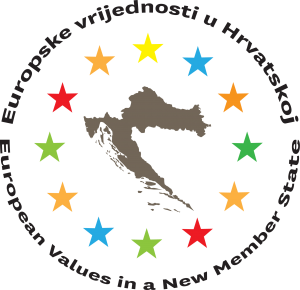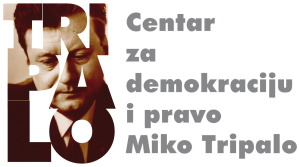Summary of Lucia Mokrá’s presentation given during the roundtable Jusitice, Equality and Diversity in Croatia (English and Croatian Version):
First speaker, Lucia Mokrá, welcomed the debate on European values which is at this moment of particular importance, given the upcoming elections for the European Parliament. She raised the question of the content of values, them being misunderstood by politicians, but she also reffered to the lack of readiness of EU Member States to implement them in their national frameworks. She pointed out that value, such as freedom, democracy and dignity, were dominant themes during the previous EU enlargement processes. However, in recent years this has changed, and nowadays themes of solidarity and rule of law are in the main focus. She believes that the problem is the evaluation of European values after they have been implemented in national systems of Member States. She argues that a possible solution to the problem of evaluation is in greater transparency during the decision making process, separation of power, and more efficient anti-corruption measures. In this context, she emphasized rule of law as the only value that can be evaluated due to its institutional framework which makes it possible. The signing of Lisbon Treaty made that possible, since the Treaty provided the EU with stronger institutional mechanisms to monitor the implementation of its fundamental values.
Prva govornica, Lucia Mokrá, pozdravila je raspravu o europskim vrijednostima koja je u ovom trenutku od osobite važnosti, s obzirom na nadolazeće izbore za Europski parlament. Postavila je pitanje o sadržaju vrijednosti, odnosno njihovom nerazumijevanju od strane političara i spremnosti država članica Europske unije da ih implementiraju u svoje nacionalne okvire. Istaknula je da su tijekom prijašnjih proširenja Europske unije dominirale vrijednosti slobode, demokracije i dostojanstva. Posljednjih godina to se promijenilo, te dominiraju teme solidarnosti i vladavine prava. Smatra da je danas problematično evaluiranje europskih vrijednosti nakon što su implementirane u sustave država članica. Kao moguća rješenja problema evaluacije vidi u povećanoj transparentnosti u donošenju odluka, raspodjeli vlasti, te efikasnijoj borbi protiv korupcije. U tom kontekstu ističe vladavinu prava kao jedinu vrijednost koja se može evaluirati jer je oko nje stvoren institucionalni okvir koji to omogućuje. Tome je pridonijelo potpisivanje Lisabonskog ugovora kojim je pružena veća institucionalna snaga Europskoj uniji da nadzire provedbu njezinih temeljnjih ideja.
Europske vrijednosti u novoj državi članici: Hrvatska u prvih pet godina članstva u EU
European Values in a New Member State: Croatia in the First Five Years of EU Membership



